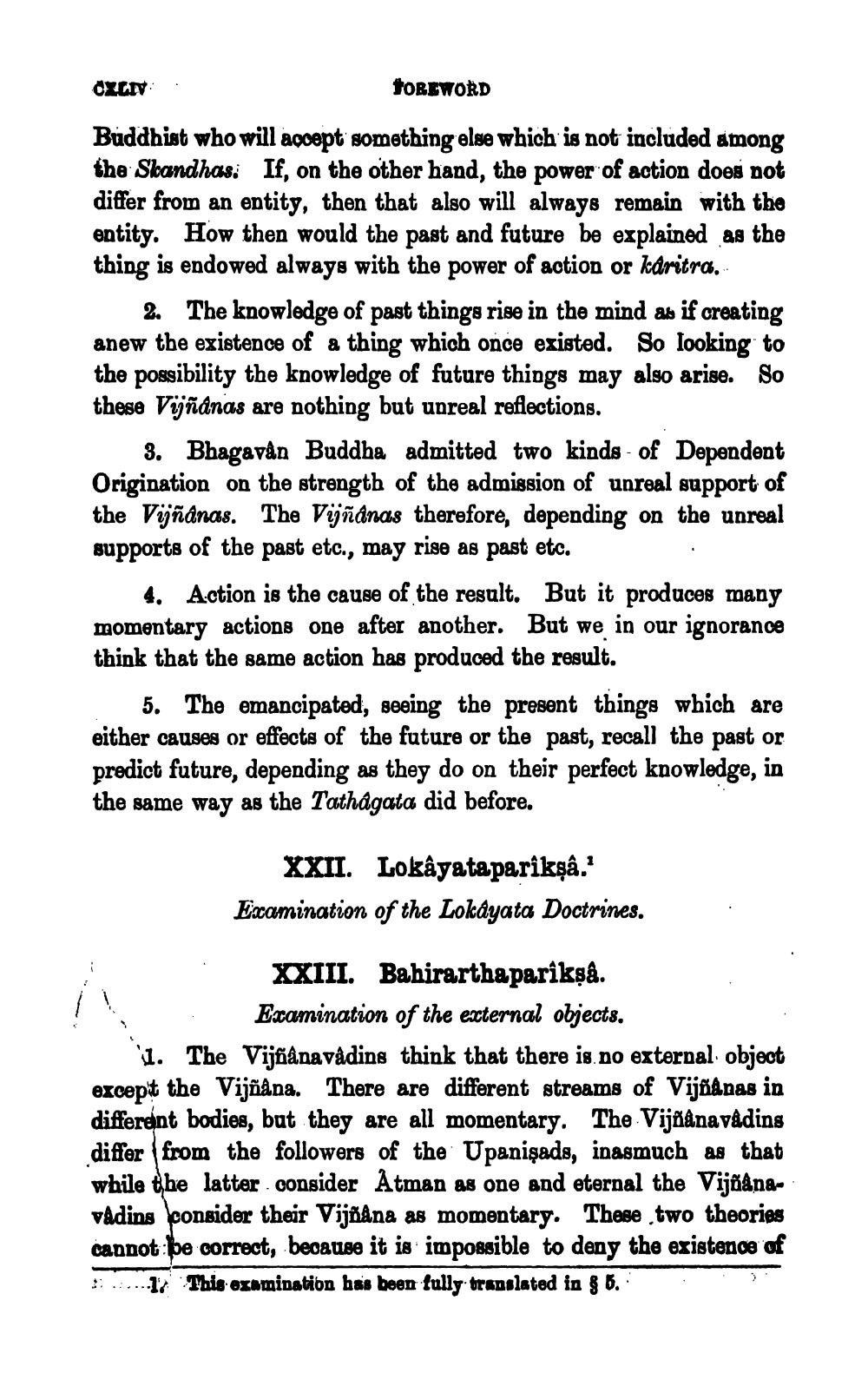________________
CZNY:
FOREWORD
Buddhist who will accept something else which is not included among the Skandhas. If, on the other hand, the power of action does not differ from an entity, then that also will always remain with the entity. How then would the past and future be explained as the thing is endowed always with the power of action or karitra.
2. The knowledge of past things rise in the mind as if creating anew the existence of a thing which once existed. So looking to the possibility the knowledge of future things may also arise. So these Vijñanas are nothing but unreal reflections.
3. Bhagavån Buddha admitted two kinds - of Dependent Origination on the strength of the admission of unreal support of the Vijñanas. The Vijñanas therefore, depending on the unreal supports of the past etc., may rise as past etc.
4. Action is the cause of the result. But it produces many momentary actions one after another. But we in our ignorance think that the same action has produced the result.
5. The emancipated, seeing the present things which are either causes or effects of the future or the past, recall the past or predict future, depending as they do on their perfect knowledge, in the same way as the Tathagata did before.
XXII. Lokâyataparikşa.' Escamination of the Lokayata Doctrines.
XXIII. Bahirarthaparikså.
Examination of the external objects. 1. The Vijfiânavadins think that there is no external object except the Vijñåna. There are different streams of Vijñanas in different bodies, but they are all momentary. The Vijfdnavidins differ from the followers of the Upanişads, inasmuch as that while the latter . consider Åtman as one and eternal the Vijäänavådins consider their Vijñana as momentary. These two theories cannot be correct, because it is impossible to deny the existence of 2...... This examination has been fully translated in g 8.




